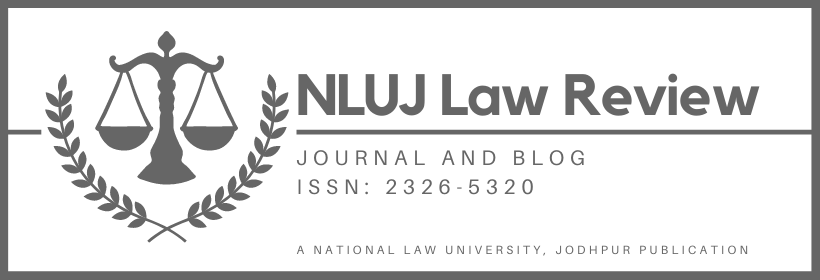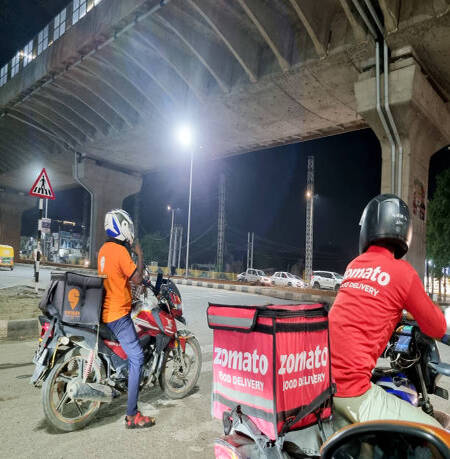The extent of the parent company’s liability in case of an anti-competitive conduct by its subsidiary depends upon the extent of its control over its subsidiary. When a parent company has power to appoint majority of the directors or control the management or the policy decisions of the subsidiary, it is said to have a control over the subsidiary. In the WhatsApp privacy policy case, Facebook was deemed to be a party to the proceedings and was subsequently held liable for WhatsApp’s conduct. However, multiple judicial fora failed to give adequate reasoning as to why the parent should be held liable.
Brief Facts of the Case
Facebook owns 100% of WhatsApp since 2014. In early 2021, WhatsApp introduced its new privacy policy, which allowed it to share data of its users with its parent, Facebook. The Competition Commission of India (“CCI”) immediately took suo moto cognizance of it and passed a prima facie order for investigation. In its order it held that WhatsApp was abusing its dominant position because data can take a form of ‘non – price competition’ which would put WhatsApp at an unfair advantage over other players. Which is in line with the observation of the CCI in its Market Study on the Telecom Sector. With regards to Facebook being a party or not, the CCI said that Facebook is a beneficiary to the anti-competitive conduct of WhatsApp and should also be liable. When Facebook argued that it was WhatsApp who introduced the policy and not Facebook and the two of them, despite being parent-subsidiary, are separate legal entities, CCI said that Facebook was being ‘evasive’ and its arguments held no merit. The CCI’s prima facie order for investigation was then challenged in the Delhi High Court, which reworded the CCI’s order and failed to provide any clarity upon Facebook’s role in the case.
Now if we look at the case of Shamsher Kataria v. Honda Siel and multiple cases of European jurisdiction we can see that the parent and subsidiary are separate legal persons, each with responsibility for their separate activities. According to both jurisdictions, a Single Economic Entity (“SEE”) is formed when the parent company exercises direct control over the subsidiary, and in such a case both of them become liable for the anti-competitive conduct. Direct control would mean the control of the parent over the subsidiary directly in the economic matters of the latter, such as manufacturing, pricing, fiscal policy etc. There are two steps to finding a SEE, first, a competition authority would have to demonstrate that the parent company can exercise decisive influence over the conduct of the subsidiary. Secondly, it would demonstrate that the parent company actually exercised such decisive influence.
A competition authority cannot find a SEE merely on the basis that the parent company can exert a decisive influence over its subsidiary, without demonstrating that the influence was actually exerted. In Alliance One International Inc. v. Commission, (“Alliance v. Commission”) the European Court of Justice(“ECJ”) confirmed that it was open for the European Commission(“EC”) to waive reliance solely on the ‘presumption of decisive influence’, and to hold parent companies liable only where there is evidence to substantiate claims of actual exercise by the parent companies.
Applying the parent-liability test in the WhatsApp case
Now, we would apply the parent company liability test or the SEE test, laid down in Shamsher Katatia, Akzo Nobel and Others v. European Commission (“Akzo Nobel”) & Alliance v. Commission in the WhatsApp case to ascertain Facebook’s liability. Which should have been done initially by the CCI before passing the prima facie order. Looking at these cases, a broad two–limbed test can be derived which would help in finding the liability of the parent company, that is as follows: (I) the decisive influence of the parent over the subsidiary (II) the material fault of the parent company in the infringement.
Applying the test to the WhatsApp case, we can see that if Facebook had decisive influence over WhatsApp and was involved in the drafting of the terms of service or even had a say in its contents, it would be held liable. With regards to the first part of the test, the Akzo Nobel judgement helps us in fast-tracking our research. It says that if a parent company owns 100% shares of its subsidiary, a presumption of decisive influence arises, that is, it is assumed that the parent exercises decisive influence over its subsidiary. This presumption is however rebuttable and the onus to rebut it is on the parent. However, in the present case assuming it cannot be rebutted, then we would turn to the second part of the test, that is, the material fault of the parent company.
This is where everything is not quite black and white. The Akzo Nobel judgment says that material fault can be of two types, instructions or involvement. Facebook has argued that it was involved in drafting the terms of service. Nor it can be proved that instructions were handed down from the parent to the subsidiary. WhatsApp, has a separate board and management for carrying out such a process, independent of Facebook, and can take such decisions itself.
Thus, by applying the parent liability test to the current case, it cannot be established that Facebook should be liable for its subsidiary, WhatsApp’s actions. This means that the second part of the test is not satisfied. The situation becomes similar to that in Alliance v. Commission, wherein the EC could not find involvement of the parent in the anti-competitive conduct of the subsidiary and had to waive off liability.
In all the cases of the Re: Suo moto order for investigation against WhatsApp, its appeal to the Delhi High Court, and finally to the Supreme Court the respective judicial fora were quick to dismiss the case by holding that Facebook, being a benefactor would be liable for its subsidiary’s actions. This is not a sufficient ground to hold a parent liable, as held in AAA v. Uniliver, active involvement is necessary for extending liability to the parent. In the case of Alliance v. Commission , the ECJ did not hold some of the parent companies liable because of a lack of material involvement.
It follows from the above that, if a parent company can demonstrate that it did not exercise decisive influence over its subsidiary or if it did not involve itself in the anti-competitive conduct of its subsidiary, the principle of personal responsibility would allow the parent company to escape liability for its subsidiary’s conduct.
Improper application of the test
The CCI failed to consider that a subsidiary’s actions would always favour the parent, which means a parent would always be liable for the acts of its subsidiary. Thus, in an illogical decision, it shut down Facebooks defence of it being a separate legal entity and held it liable, merely on grounds of it being a beneficiary.
The situation is a little unfavourable for parents with wholly-owned subsidiaries, as the European and Indian Commission doesn’t put much weight on the second part of the test and can easily attach liability based on the first part alone. Now, in these cases, a presumption of decisive influence arises. Which is extremely hard to rebut and lacks any guidelines on how to rebut it.
The EC has attached liability to parent companies that appointed their subsidiary’s directors. It would be unreasonable, and contrary to international comity, to say that a parent company that fulfils the requirements of the company law applicable to it has exposed itself to fines. If this were enough to result in fines, the presumption would be impossible to rebut. Furthermore if the presumption becomes irrebuttable, it would amount to a breach of fundamental rights. Thus the rebuttable nature of the presumption is necessary to guarantee the rights of defence and access to justice of the parent company. However, the commission is legally obliged to maintain that the presumption is rebuttable.
Both parts of the test should be given equal weightage, but even if the EC overlooks the second part of the test, it should keep in mind that the presumption of decisive influence is rebuttable in nature and should keep an open mind while assessing the parent’s liability.
The trend of attaching liability to the parent company in every case has to be dealt away with. Especially where it cannot be inferred that the parent had active-involvement in the anti-competitive conduct of its subsidiary. Therefore, a two-limbed ‘parent liability test’ can be adopted. First, there would be the rebuttable presumption of decisive influence (which arises automatically in case of parents of wholly-owned subsidiaries). Any guidelines on how to rebut this presumption would go a long way. Second, there should be some ‘material fault’ of the parent i.e., instructions or involvement. Once these two limbs are satisfied, the competition regulator would be all in its capacity to attach liability to the parent. This article is authored by Varun Singh and Soumya Sharma, 4th year students at Dr. B.R. Ambedkar National Law University.



